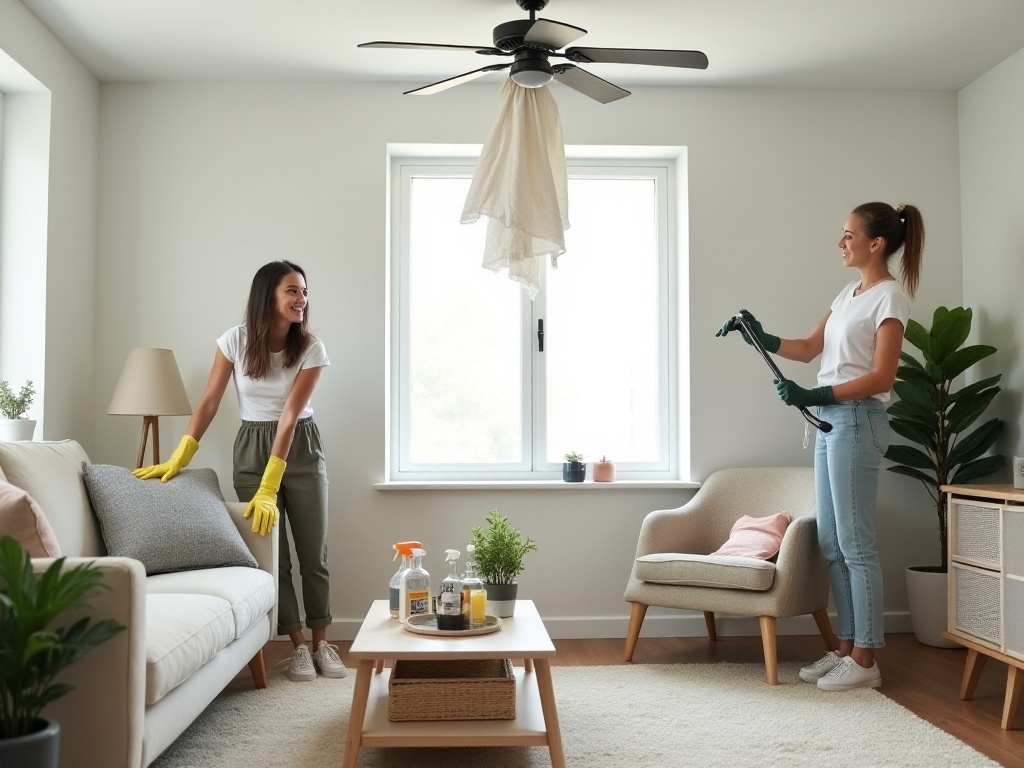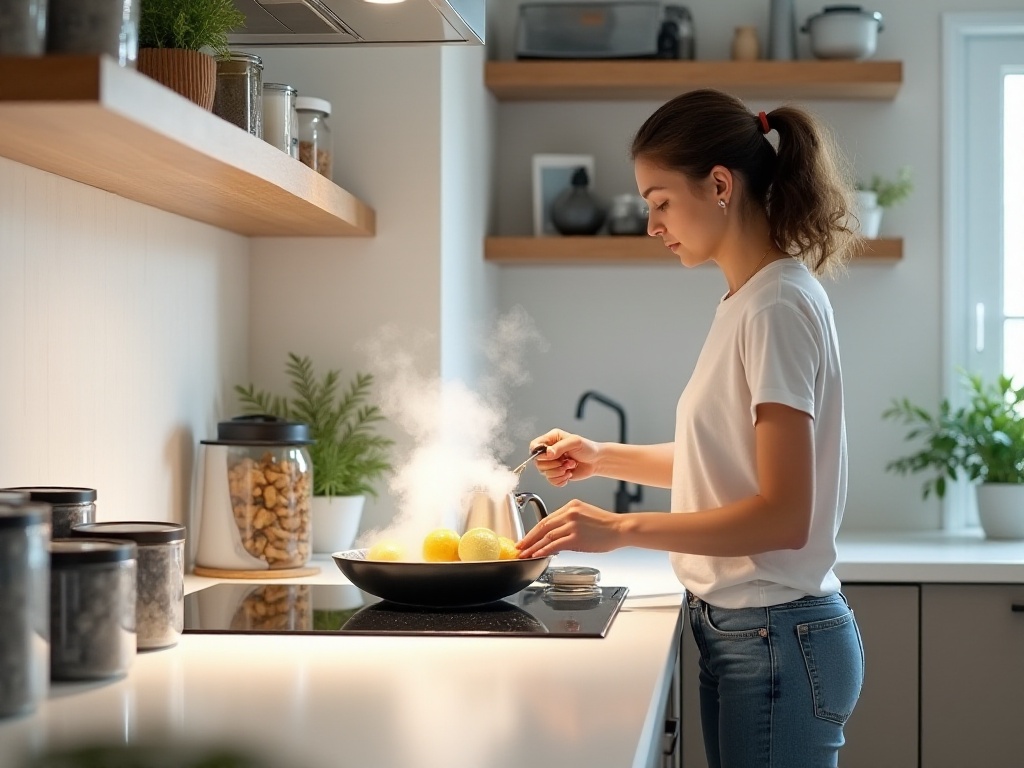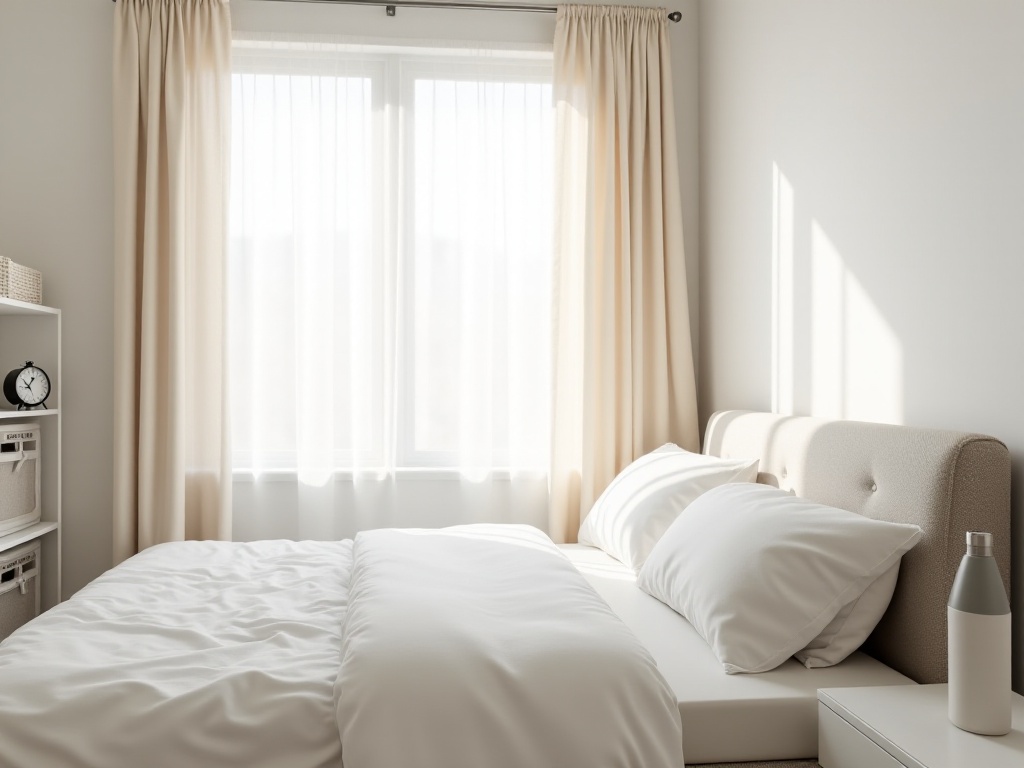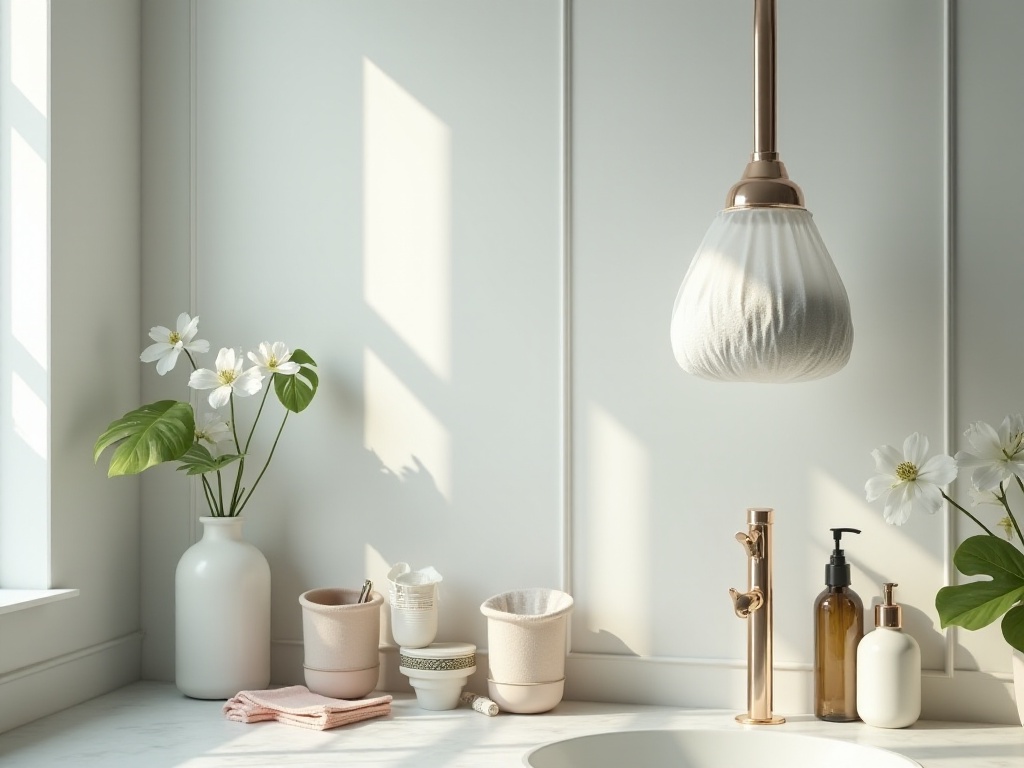Recently, I've been thinking about a question: why are some friends around me able to work and study energetically every day, while others are always drowsy and lacking energy? Through recent in-depth research and personal practice, I've discovered that improving life efficiency doesn't require any particularly remarkable big changes. Often, it just starts with some seemingly trivial things. Today, I'd like to share my personal insights and experiences with everyone.
Morning Revolution
The other day, I was chatting with a female reader who complained about fighting a guerrilla war with her alarm clock every day, wishing she could throw it out the window. After hearing her description, I suddenly realized that many friends around me are struggling with getting up early. But thinking carefully, maybe the key to the problem isn't willpower at all, but rather some simple environmental settings?
Goodbye to Oversleeping
Starting today, I strongly suggest you try a small change: place your alarm clock at least three meters away from your bed. Sounds simple, right? But the effect is truly magical! Why do this? Because this way, you must physically leave the warm, comfortable bed to turn off that "devil's alarm." By the time you stumble to the alarm clock, your brain has already started functioning, and the probability of going back to bed for more sleep will greatly decrease.
Speaking of this, I must share my personal experience. When I first tried this method, I was quite reluctant, feeling that getting up in the cold to turn off the alarm was torture. But after persisting for a week, I found this method really effective. Previously, I had to hit the snooze button seven or eight times before truly waking up, but now I can usually manage it in one try. Do you know what this means? It means I can save at least 15 minutes every day! That adds up to 450 minutes in a month, enough time to watch two Marvel movies.
Not only that, but I also found the quality of my early rising improved. Before, even after getting up, I was always groggy, but now because I have to walk a distance to turn off the alarm, I'm much more alert. Moreover, this feeling of being "forced" awake has actually reduced my morning grumpiness, and my mood throughout the day has improved.
Evening Layout
Speaking of getting up early, we must mention a super important step: preparation work the night before. Have you noticed that rushing around in the morning and being late is often because we got lazy the night before?
Now, I consistently spend 10 minutes every night before bed making thorough preparations for the next day. Specifically, I choose, iron, and hang the next day's clothes on hangers (including matching underwear and socks), organize my bag and place it in a fixed position by the door, and even set out the cup I'll use the next morning and arrange any documents I need to take.
When I first started maintaining this habit, I thought it was a bit troublesome, thinking I would have to organize things the next morning anyway, so why prepare in advance? But after putting it into practice, I discovered that this 10-minute investment is absolutely worth it! First, it saves you at least 20 minutes the next morning. More importantly, it greatly reduces your psychological pressure.
Imagine when you groggily get up and find everything is already prepared, you just need to wash up and change clothes to head out, doesn't that make you feel much more relaxed? According to some psychological research, reducing morning decision burden (like agonizing over what to wear or what to bring) can significantly improve work efficiency throughout the day.
Besides preparing necessities for the next day, I also make a simple plan before bed: writing the three most important things for tomorrow on a sticky note and placing it by my bedside. This way, when I get up the next day, I immediately know what my work priorities are, without wasting time thinking about "what should I do today."
Interestingly, this evening preparation work can also help you sleep better. When you know everything is arranged for the next day, your brain will be more relaxed, and you won't lie in bed worrying about tomorrow's affairs.
Space Reorganization
Positioning Theory
When it comes to improving efficiency, we must talk about the headache-inducing problem of finding things. A statistic might shock you: ordinary people waste nearly 6 months of time looking for things! Yes, 6 months! Think about it, if this time were used to learn a new skill or cultivate a hobby, how wonderful would that be?
So, how can we avoid wasting lots of time looking for things? The answer is actually simple: assign a fixed "home" for everything. Just like everyone in your house has their own room, your keys, phone, wallet, charger, and other items should also have their fixed positions.
I recently implemented this "positioning theory" at home. I set up a simple storage rack at the entrance specifically for keys and masks; divided different areas on my desk for frequently used stationery and electronic devices; and organized clothes in the closet by occasion and season.
When first implementing this plan, it did take some time to adjust. But after persisting for a week, I found life became much easier. Previously, I had to search everywhere for my keys before going out, but now I can immediately find them by just looking at the entrance storage rack. Moreover, this organization method helps you promptly discover which items you really need and which can be cleared out.

Storage Innovation
Speaking of storage, I recently discovered a particularly useful small item: carabiners. Don't find it strange - although carabiners are for mountain climbing, their practical value in daily life is really high.
I now use carabiners to hang keys directly on my bag, so I no longer need to rummage through my bag to find keys. Moreover, because carabiners are designed to be very secure, there's no worry about keys falling off. This small change seems simple, but it saves me at least 5 minutes of key-finding time every day.
Besides carabiners, I've also started using some creative storage solutions. For example, using adjustable dividers to separate drawers into small compartments so socks and underwear don't become a mess; using transparent storage boxes for cosmetics so you can see at a glance which one you need; even marking data cables with different colored labels so you never grab the wrong charger.
These storage solutions not only make spaces look neater, more importantly, they greatly improve the efficiency of finding things. According to time management experts, a good storage system can reduce the time spent looking for things by over 50%.
New Cleaning Mindset
Kitchen Wisdom
Speaking of cleaning, many people think the kitchen is the most difficult to handle. But actually, if you master the right methods, kitchen cleaning can become easy and efficient.
I now use the strategy of "clean as you cook." For example, while waiting for water to boil, I'll put away seasonings I've already used; during gaps while frying ingredients, I'll return unused ingredients to the refrigerator; while waiting for rice to cook, I'll dispose of garbage generated from cutting vegetables.
What are the benefits of this method? First, it keeps your kitchen consistently clean, so you don't face a "battlefield" after finishing cooking; second, this "fragmented cleaning" can save 40% of time compared to concentrated cleaning. Moreover, once you develop this habit, you'll find your cooking mood improves because the whole process is orderly and you won't feel overwhelmed.
Besides cleaning as you cook, I have some other tips. For example, hanging a garbage bag next to the cutting board before cutting vegetables so vegetable waste can be swept directly into the garbage bag; covering the stove with foil or a special anti-oil mesh when stir-frying, making oil stain cleaning much easier; when making soup or stewing meat, placing an inverted small bowl in the pot so the soup's oil will automatically gather at the bottom of the bowl, making it easy to clean.
Bathroom Revolution
Bathroom cleaning has always been a headache for many people. Especially the limescale on shower heads, which not only affects water flow but also looks unsightly. But actually, there's a super simple solution: use a plastic bag filled with white vinegar, secure it over the shower head with a rubber band, and let it soak overnight.
The next morning you'll find the limescale has automatically fallen off! This method is not only environmentally friendly but also 90% cheaper than commercial cleaners. Moreover, white vinegar is a natural cleaner that won't produce irritating odors or harm your skin.
Besides shower heads, many other places in the bathroom can be cleaned with this eco-friendly and money-saving method. For example, toilet seats can be cleaned with a mixture of white vinegar and baking soda, which not only removes stains but also eliminates odors; bathroom glass doors can be wiped with newspaper dipped in white vinegar, which not only removes water stains but also makes the glass crystal clear.

Deep Maintenance

Furniture Rescue
Furniture maintenance is also an important aspect of improving life quality. Many people give up when they see water rings on furniture, thinking they can only call professionals to handle it. Actually, that's not the case - with just a hair dryer, you can easily solve this problem.
The specific method is: set the hair dryer to medium temperature and blow back and forth over the water ring, you'll find it slowly disappears. This method has a success rate over 85% and won't damage the furniture surface at all. The principle is actually simple - using hot air to make water evaporate quickly while the wood fibers gradually return to their original state under heat.
Besides dealing with water rings, hair dryers can help with other furniture problems. For example, dents in wooden furniture can be covered with a wet towel, then heated with a hair dryer, repeat several times after the towel cools, and the dent will gradually rise; candle wax on furniture can also be softened with a hair dryer and gently wiped off with tissue paper.

Carpet Care
Speaking of home maintenance, we must mention carpet cleaning issues. The most common mistake people make when dealing with carpet stains is rubbing hard, especially with stubborn stains like red wine. But actually, rubbing only makes the stain spread worse, the correct approach is to immediately use a clean white towel to gently press and absorb excess liquid.
Then, you can treat the stain with a solution of equal parts white vinegar and water. This method can remove over 90% of red wine stains without leaving an unpleasant odor. For coffee stains, you can first sprinkle baking soda powder, wait for it to absorb the stain, then vacuum it up.
For routine carpet maintenance, I suggest thoroughly vacuuming once a week and deep cleaning with professional carpet cleaner every three months. Before cleaning, you can gently brush the carpet fibers with a soft brush, which not only makes the carpet look neater but also extends its lifespan.
Concluding Thoughts
Through sharing these tips, don't you feel life can actually become simpler? Improving efficiency really doesn't require earth-shattering changes, sometimes just adjusting the position of an alarm clock or changing storage methods is enough.
Actually, the key to improving life efficiency lies in establishing a system that suits yourself. This system doesn't need to be complicated, but must be consistently executed. Just like placing the alarm clock farther away as we mentioned earlier, it seems like a small change, but persisting with it can bring significant effects.
When you start paying attention to these details, you'll discover many more areas in life that can be optimized. Such as phone placement, workspace layout, closet organization, etc. Every small change might bring efficiency improvements, and these improvements accumulated together can lead to a qualitative leap in your quality of life.
So here's the question: do you have any small tips for making life more efficient? Or have you encountered any problems while practicing these methods? Welcome to share your thoughts and experiences in the comments section. Let's create a more efficient, more relaxed life together.
Remember, change isn't about size, but about persistence. As long as you're willing to start, even if it's just adjusting the position of an alarm clock, your life is already changing towards a better direction. Looking forward to hearing your stories and experiences!


